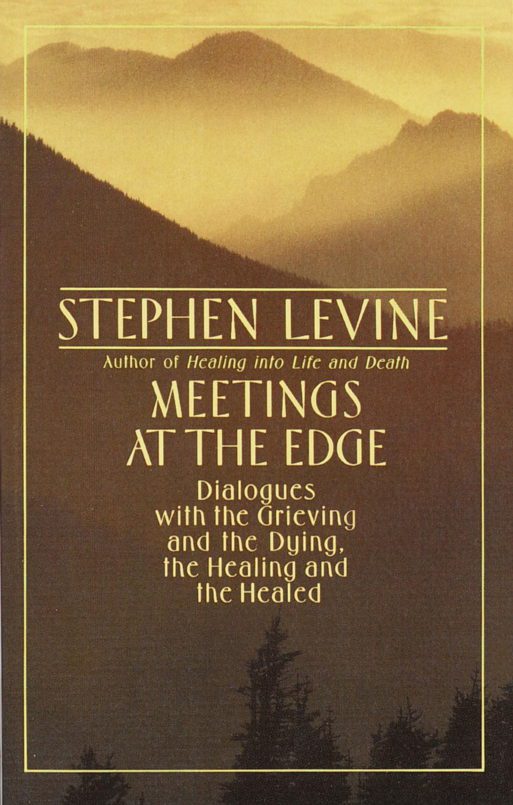 “Let this book tear your heart open,” Stephen Levine writes in the introduction to his book Meetings At The Edge: Dialogues With the Grieving and Dying, The Healing and The Healed, a compilation of transcribed conversations Levine had with people actively confronting death. Some of the conversations in the collection were with people grieving the loss of loved ones, some with people working closely with the dying, and some with people nearing the end of their own lives. Most of the conversations took place over the phone – he calls it the “dying phone.”
“Let this book tear your heart open,” Stephen Levine writes in the introduction to his book Meetings At The Edge: Dialogues With the Grieving and Dying, The Healing and The Healed, a compilation of transcribed conversations Levine had with people actively confronting death. Some of the conversations in the collection were with people grieving the loss of loved ones, some with people working closely with the dying, and some with people nearing the end of their own lives. Most of the conversations took place over the phone – he calls it the “dying phone.”
For years, Stephen Levine and his wife Ondrea directed the Hanuman Foundation Dying Project, at the invitation of Ram Dass. During their time as directors, they offered a free consultation phone for “the terminally ill and those working closely with a death.” This was the “dying phone,” and much of the material in the book comes from these sessions.
If we choose to accept the challenge of Stephen’s questions, we have the opportunity to discover the deeper spiritual truths just under the wrapping paper of conventional wisdom, hidden inside the folding carton of easy explanations.
Stephen Levine is a poet, author and meditation teacher who is best known for his work on death and dying. He is part of a cadre of teachers of his generation who have worked for decades to make the teachings of Theravada Buddhism more accessible for an American (and, more broadly, Western) audience. Ondrea and he have spent years counseling people through their grief, and Meetings At The Edge allows us a glimpse into their process. We gain access to startling insights that arise during the course of these conversations, bits of hard-earned wisdom out of the mouths of both the counseled and counselor. Stephen asks challenging questions, questions that encourage his client, and by proxy, the reader, to unpack our cherished analyses of our experiences. If we choose to accept the challenge of Stephen’s questions, we have the opportunity to discover the deeper spiritual truths just under the wrapping paper of conventional wisdom, hidden inside the folding carton of easy explanations.
In the hell of grief, we get to experience the astonishing healing power of empathy.
This book offers some very intimate dialogue, and a few pages in, I knew that I was reading one of those books that feel like a sacred gift from the deepest well of the human soul. It’s one of those books that silences the mindless chatter in your head with overwhelming wisdom, and slows the world down until you find yourself still, finally, and gasping at how absolutely heartbreaking, hard, precious and miraculous it is to be a human. We have to contend with so much while we’re here, in our bodies. We suffer so much loss. We receive such deep love. In the hell of grief, we get to experience the astonishing healing power of empathy. When someone sits with us and stays, when someone holds space for our pain and says, “Me too,” and the jig is up and the guard is down. We realize that helping each other through this strange, lovely and often tragic journey is maybe the whole point of being on it. Teachers like Stephen and Ondrea Levine help us bridge the gap between the isolated and collective experience. They open the world up when it’s become too small, and gently help guide us into what Stephen calls “the heart of the mystery,” where we can do our work. They remind us that we are capable of facing death and dying, and that we have companions. We can take it from there.

 Meetings at the Edge: Dialogues with the Grieving and the Dying, the Healing and the Healed by Stephen Levine
Meetings at the Edge: Dialogues with the Grieving and the Dying, the Healing and the Healed by Stephen Levine



 The Other Death in the Family
The Other Death in the Family

 The Healing Sound of Singing Bowls
The Healing Sound of Singing Bowls














